What Does a Life Coach Do? Roles, Benefits & How They Help You Succeed

What Does a Life Coach Do? Roles, Benefits & How They Help You Succeed
A life coach helps people to grow using their training, personal experience, and practical tools. They work with clients one-on-one, in small groups, in person, or online. You may wonder, "What does a life coach do?"
A life coach supports you to:
Feel more confident and self-aware
Make better, more reliable choices.
Get clear on what you want in life or work.
Take strong steps toward your goals.
Use your full potential.
However, a life coach uses different techniques to guide you, like asking the right questions, helping you visualize success, or shifting how you see challenges.
Some also use ideas from therapy methods, like parts of cognitive behavior therapy (CBT), to help you move forward simply and effectively.
Today's guide will thoroughly explain what a life coach does. So, keep reading until the end!
What Does a Life Coach Do?

So, what does a life coach do? Simply put, they help people improve their lives by supporting clients in setting clear goals and making changes.
Coaches ask simple questions to understand each person's situation. They give honest advice and help people take small steps forward. They also check in often to keep clients focused.
People hire life coaches if they feel lost or undergo significant changes. Some may need help with emotions or social issues that get in the way.
However, a life coach usually does the following things:
Talk with new clients to learn about their backgrounds, goals, and challenges
Work with clients on finances, building skills, and solving everyday problems.
Use personality or skill tests to help clients learn more about themselves.
Help clients set clear goals and make simple plans to achieve them.
Check in regularly to track progress and keep clients motivated.
Teach skills like handling emotions, talking clearly, and building better habits.
We have explained above what a life coach does. They're not therapists, but they help people grow and feel more in control of their lives. Usually life coaches use life coaching platforms to conduct their coaching sessions.
Types of Life Coaches
Some life coaches help with many areas of life. Others focus on one topic. Here are common types of life coaches:
Career coaches help people find jobs or change careers.
Money coaches guide people in saving and spending better.
Divorce coaches help people deal with breakups.
Mental health coaches support people with stress or low moods.
Spiritual coaches help people find peace and meaning.
Life skills coaches teach everyday skills like time management and stress management.
Addiction and sobriety coaches help with staying clean and building new habits.
Business and executive Coaches support leadership and career growth.
Health, wellness, and fitness coaching promote better habits for a healthy life.
Sports coaching focuses on performance and mindset in sports.
What to Look for in a Life Coach?
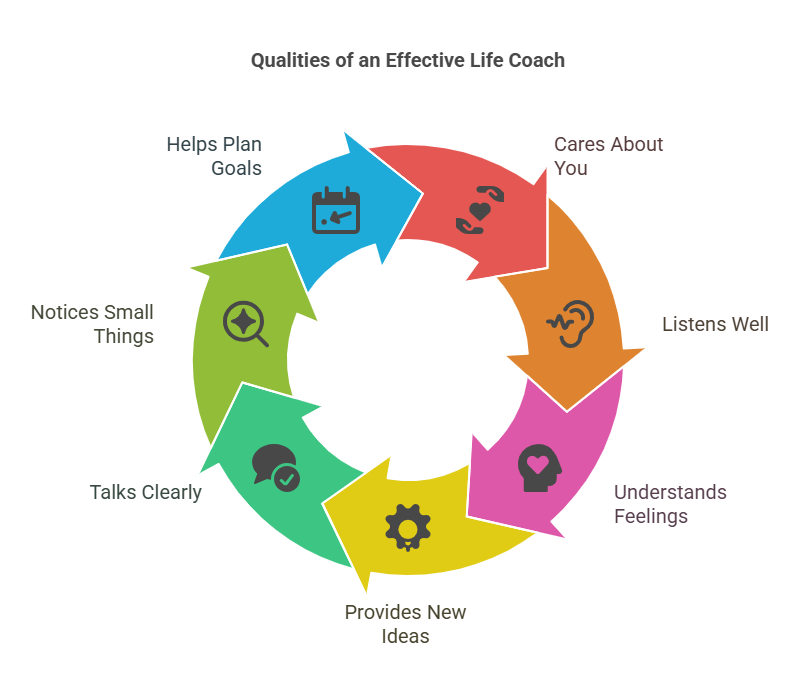
When choosing a life coach, you should consider the following things:
Cares About You
A good coach listens to all your words and wants to help you. They care for what you need or want to achieve in life and guide you accordingly.
Listens Well
A good life coach must first hear you. They hear what you say and what you don't say. After listening to all your problems and prospects, they help you reach your goals in their life coaching process.
Understands Feelings
You must choose a coach with whom you feel safe sharing your thoughts. A life coach will understand your feelings properly and help you develop a mindset to push beyond your comfort zone and take risks.
Provide New Ideas
Whether you need career, health, relationship, or personal growth, they will give you fresh ways to solve problems. With new ideas, they identify the potential risks and break the risky tasks into manageable parts.
Talks Clearly
A good life coach explains things in a way that's easy to understand. They don't misguide you or provide you with unnecessary hope. The coach will talk clearly, explaining everything.
Notice Small Things
A life coach notices even the little things that can help you grow. The coach provides unbiased and honest advice that enables you to grow.
Helps Plan Goals
They work with you to make simple, clear plans. A good life coach will help you develop your habits and skills, leading to long-term growth. Their life coaching process will help you create a healthier routine, improve time management, and set boundaries.
A good life coach supports you, step by step, without pressure.

What Benefits Does A Life Coach Offer?
People hire life coaches to get better at handling life or work. A life coach helps you succeed in many ways. The coaching session benefits are:
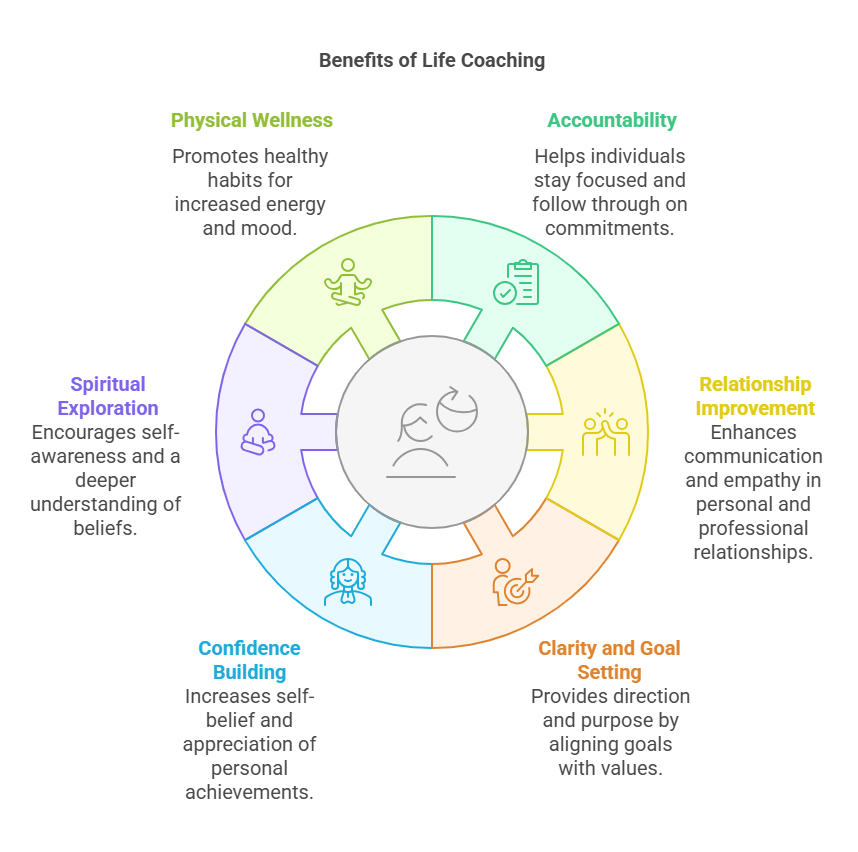
i) Stay Accountable and Motivated
A life coach helps you take charge of your actions. He keeps you focused and reminds you to follow through. With the help of a life coach, you can break habits like procrastination.
With regular check-ins, a coach helps you stay motivated and steadily progress toward your goals.
ii) Improve Work and Personal Relationships
A life coach can strengthen your relationships at home and on the job. You'll learn how to listen better, speak clearly, and show empathy.
Coaches also help you set healthy boundaries and handle disagreements. You can build stronger, more respectful connections with these skills.
iii) Find Clarity and Set Clear Goals
If you feel unsure about your direction in life, a life coach can help you clarify things. They can help you set goals that align with your values and interests and bring focus and purpose to your life.
A life coach also enables you to understand your strengths and the areas where you want to grow.
iv) Build Confidence
Many people deal with low confidence or feel like they don't deserve success. A life coach can help build trust in you. You'll reflect on your progress, learn to appreciate your wins, and use simple tools like affirmations to develop your belief in yourself.
v) Explore Your Spiritual Side
If you're looking for deeper meaning, a spiritual coach can help. They guide you in understanding your beliefs and exploring what matters most. This process encourages self-awareness and can bring a stronger sense of peace and purpose.
vi) Improve Your Physical Wellness
A wellness life coach focuses on your health. They guide you on what to eat, how to move, and ways to reduce stress. With their support, you can build healthy routines that increase your energy, improve your mood, and support your bigger goals in life.

Life Coach vs. Therapist
Life coaches and therapists both help people, but they do it in different ways. Therapists focus on the past. They look at childhood, past events, and mental health to help someone heal and feel better.
Therapists and life coaches are both helpful. They serve different purposes. A therapist helps you heal. A life coach enables you to move forward.
However, a life coach and therapist differ in the following ways:
Life Coach
Life coaches look at the future. They help people set goals and take steps to reach them. Moreover, life coaches use tools like goal-setting and personal growth plans. They focus more on action and progress.
Coaches help you move forward, not dig into your past.
They guide you to set clear goals and build better habits.
Coaching is about personal growth, not mental health care.
Life coaches don't give medical advice or diagnose problems.
They help with things like confidence, career, health, and motivation.
Coaching feels like a friendly push, not therapy.
Life coaches don't give answers. They help you find your own.
Therapist
Therapists use treatments like talk therapy to deal with deep emotional issues.
Therapists are trained to treat mental health issues.
They have licenses and follow medical guidelines.
They help you understand deep patterns in your thoughts and feelings.
Therapists can diagnose conditions like anxiety or depression.
They use proven methods like CBT or talk therapy.
Some therapists work with doctors or give medication if trained.
If you need support with emotions or mental health, see a therapist. A coach can help if you want to grow, set goals, or change your life or work.
What are the Requirements to Become A Life Coach?
You need the right skills, training, and sometimes a certificate to work as a life coach. Here's what most coaches need:
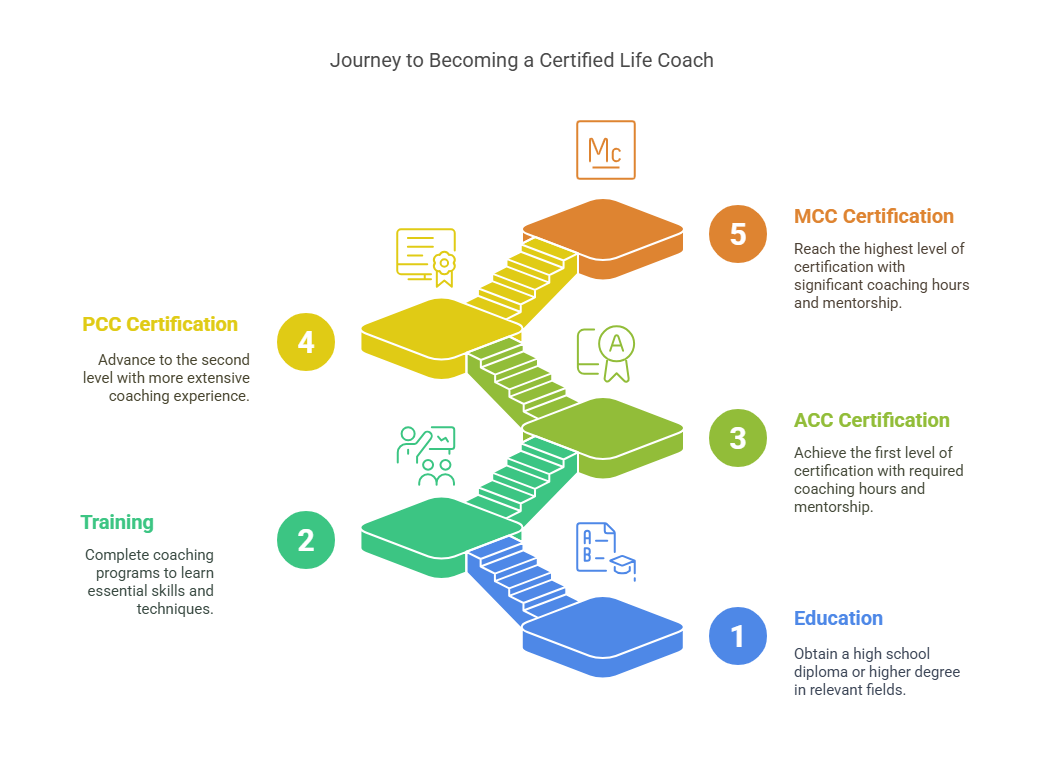
1. Education
Life coaches can have different school backgrounds. Most have a high school diploma or GED. Some jobs may require a business, psychology, or communication degree. If someone wants to go further, they might study more and get a master's or higher degree.
2. Training
Many life coaches receive training from a coaching school. These programs teach how to work with people, set goals, and handle real-life issues.
Coaches learn through practice sessions. Most programs also require a set number of coaching hours. A life coach can receive training online or in person.
3. Certification
After training, some coaches get certified. The International Coach Federation (ICF) is the main group that gives certificates. It has three levels:
ACC (Associate Certified Coach)
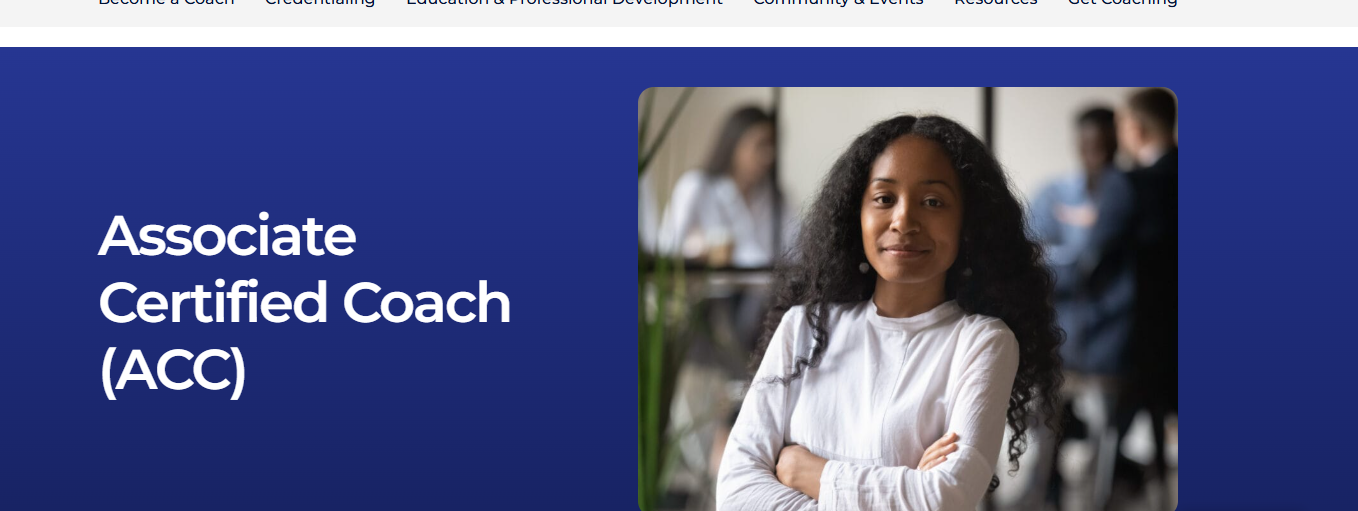
Needs training, 100 coaching hours, 10 mentor hours, a test, and a coaching record.
PCC (Professional Certified Coach)

More training, 500 hours of coaching, mentor hours, the same test, and a record are needed.
MCC (Master Certified Coach)
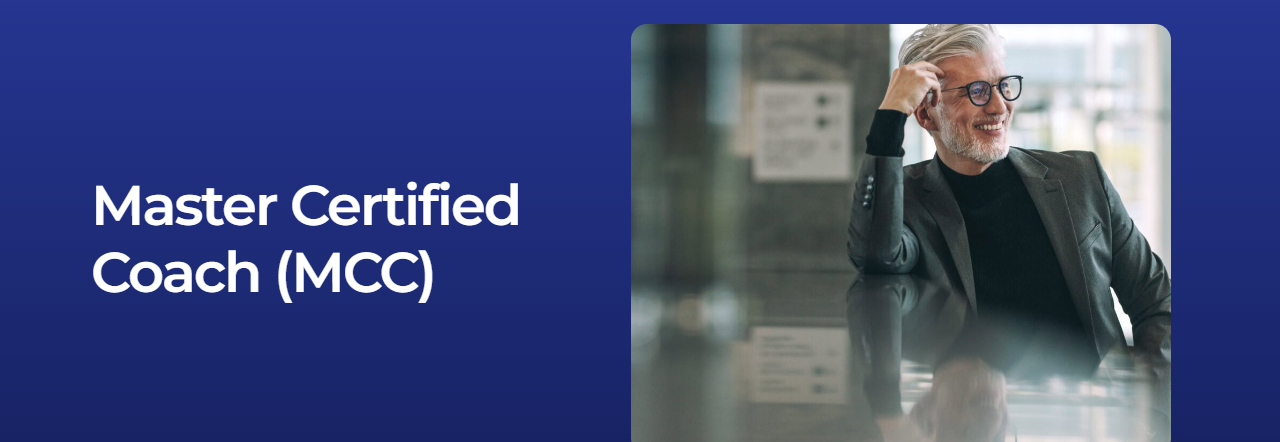
First, you must have a PCC, then do 2,500 coaching and 10 mentor hours. If you haven't already, you must pass the test.
To keep the certificate, coaches must take new courses every few years.
What Key Skills A Life Coach Should Have?
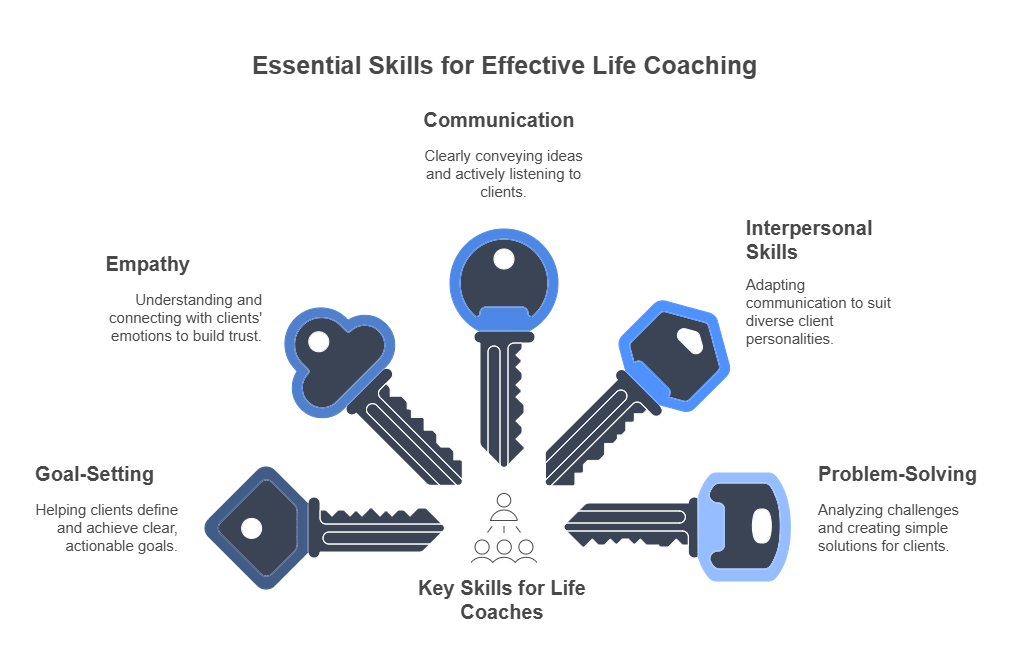
Life coaches need a mix of people skills and clear thinking. These help them guide others simply, honestly, and helpfully. Here are some of the most valuable skills:
Goal-Setting
Life coaches help clients set clear goals. They use simple tools like SMART goals to plan easy steps forward. They also teach clients how to set goals on their own.
Empathy
A good coach understands how clients feel. They listen with care and try to see things from the client's point of view, building trust and helping the coach offer the right advice.
Communication
Coaches talk clearly and listen closely. They explain plans in simple words. They also write notes and guides to help clients remember what to do.
Interpersonal Skills
Everyone is different. A coach needs to adjust how they talk based on each client. They should be friendly, open, and easy to talk to.
Problem-solving
Coaches help people solve real problems. They examine strengths, blocks, and goals and then build simple plans for progress.
Teamwork with Clients
A life coach works side-by-side with each person. They don't give orders. Instead, they guide and support. The client stays in charge of their growth and results.
Steps to Become a Life Coach
To become a life coach, you need the following:
Get an Education
To become a life coach, you don't need a special degree. But if you have a bachelor's in psychology, business, or communication, it can help. It gives you basic skills to work with people and understand their needs.
Join a Training Program
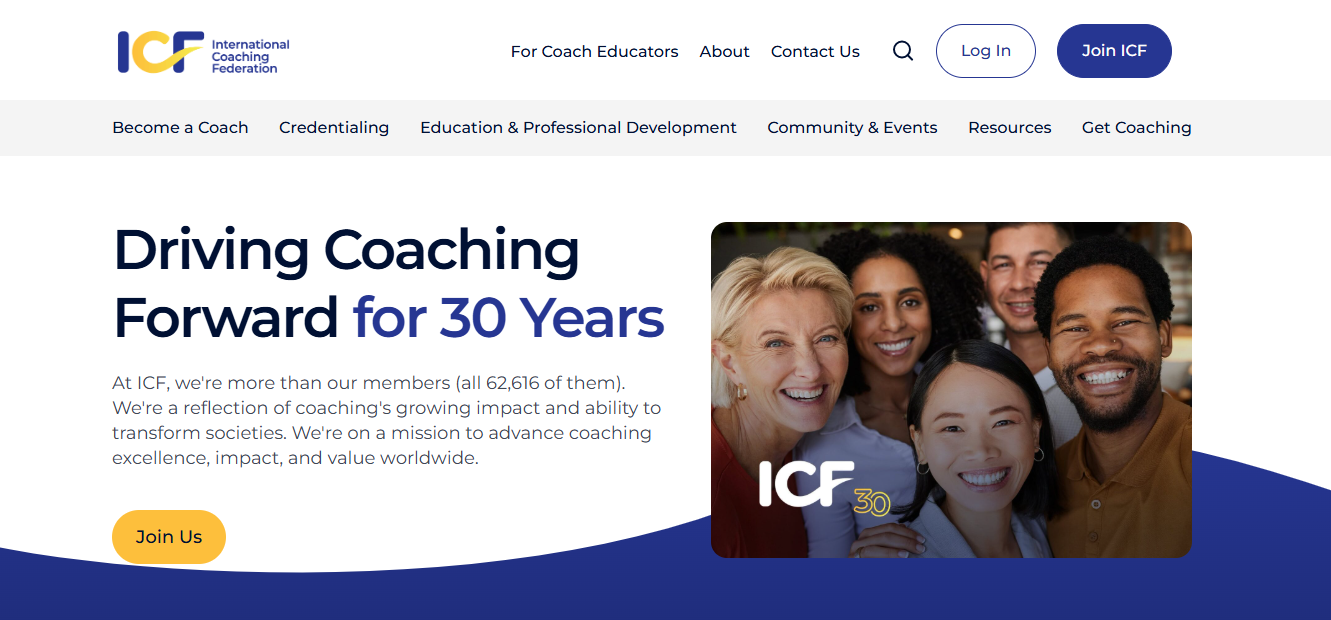
You should look for a course that teaches coaching methods and tools. Choose a program approved by the International Coaching Federation (ICF) to get certified later.
Practice with Real Clients
You must coach people to get real experience during training. Many programs help you find clients. Use what you've learned and start building your skills.
Get Certified
Take the CKA exam to earn ICF certification after training. You can aim for ACC or PCC based on your goals. If you want to go further, gain more hours, and apply for the MCC level.
Keep Learning
To keep your ICF certificate active, you must complete 40 hours of learning every three years. You can also pursue a master's or higher degree to improve your knowledge and grow your practice.

Who Can Benefit From A Life Coach?
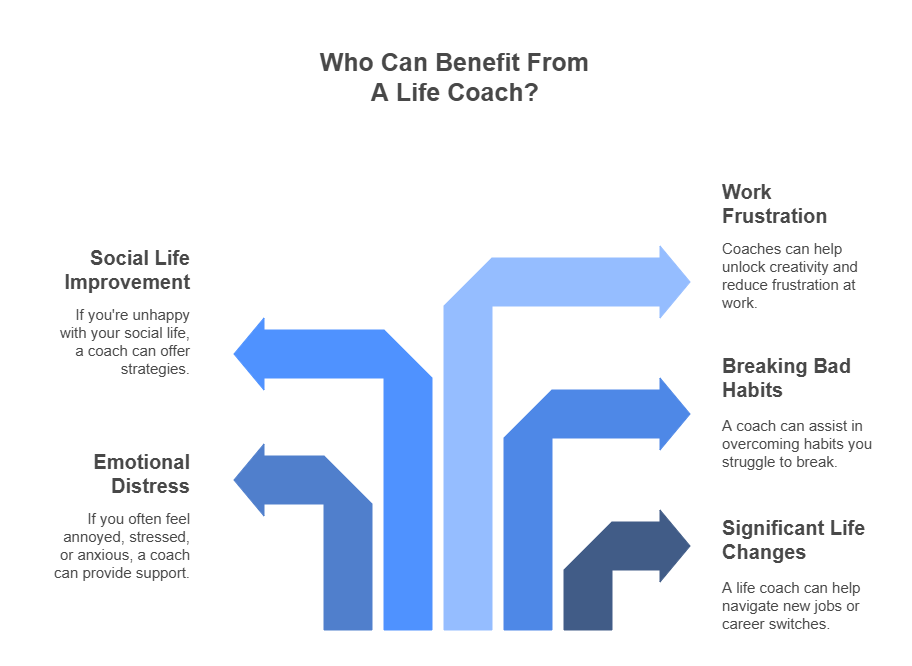
Many people work with life coaches during significant changes, like starting a new job or switching careers. Others reach out simply to feel happier and in control of their lives.
You might need a life coach if you often feel:
Easily annoyed or upset
Stressed or anxious most of the time
Stuck in bad habits you can't break.
Unhappy with your social life
Frustrated at work, like your creativity is blocked.
Today, more people know about life coaching. Many business owners, leaders, and creative people now use life coaches to grow in both work and life.
What to Know Before You Hire a Life Coach?
Do you know how life coaching techniques work? Before working with a life coach, you should keep a few simple things in mind:
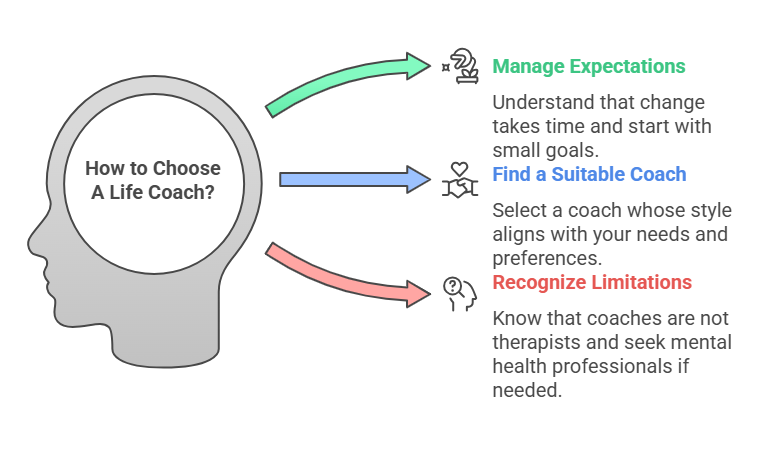
1. Change Won't Happen Overnight
A coach can help you set goals and make a plan, but results take time. Don't expect quick fixes. You must start with small goals and work your way up.
2. Find a Suitable Coach
Each coach has a different style. Some are more direct, while others focus on your feelings or habits. We recommend that you pick someone who understands you and works in a way that feels right.
3. Coaches Are Not Therapists
If you feel sad, anxious, or overwhelmed, you should talk to a doctor or mental health expert. A coach can support your growth, but they can't treat mental health problems.
Life coaches and therapists both help people, but they do very different things. A therapist treats mental health issues, while a coach enables you to grow and reach goals.

How to Know If a Life Coach Is Right for You?
There's no single rule for what makes a great coach. The right coach is the one who fits your needs and helps you grow. Here are four simple ways to know if your coach is a good match:
1. You Feel A Connection
You should pick someone with whom you feel comfortable. Trust and ease matter. The coaching won't work well if you don't feel safe or heard.
2. They Understand Your Goals
We recommend choosing a coach who understands your focus, work, life changes, or personal growth. Make sure the coach has the right training and background.
3. Their Time Works for You
You need to meet regularly to stay on track. Make sure the coach's schedule fits yours so sessions remain consistent.
4. You See Real Progress
A good coach helps you stay focused, clear, and motivated. If you're not progressing or feeling better, it might be time to look for someone else.
How a Life Coach Can Support You?
In the following four simple ways, a life coach can help you:
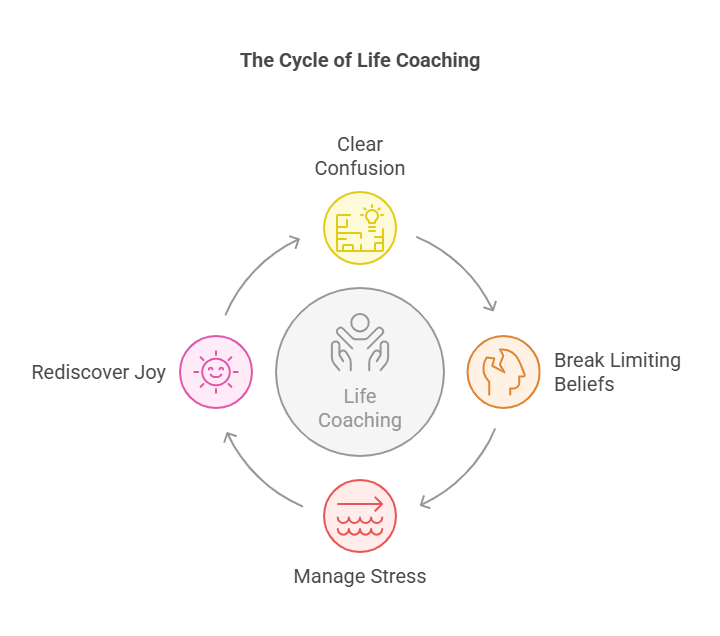
1. Clearing Confusion
Feeling overwhelmed is common. It can make you freeze and overthink everything. A coach gives you a fresh outside view. They help you cut through the noise, find the next step, and take action.
2. Breaking Limiting Beliefs
Many of us have negative thoughts we don't even notice. These hidden beliefs can hold us back without us knowing why. A coach can spot these patterns, bring them to light, and help you replace them with better ones.
3. Managing Stress and Anxiety
Everyone experiences stress, but sometimes, it becomes too much. A coach helps you find the root causes and develop simple ways to manage your stress so you can focus on what matters.
4. Rediscovering Joy
Life can feel dull when we lose touch with what we love. A coach helps you make space for joy again. They remind you why happiness matters, help you prioritize it, and support you as you bring that energy back into your daily life.

Frequently Asked Questions
What is the purpose of having a life coach?
A coach helps people achieve professional goals and personal growth. They provide structured guidance to help people overcome challenges in life.
What type of person needs a life coach?
People who face challenges in their relationships, career transitions or feel stuck in life can seek help from a coach. A coach can support people in making big decisions, setting goals, and creating a better work-life balance.
Can anyone be a life coach?
Yes, anyone can be a coach, whether they have a life coaching certification or not. However, they must know the life coaching process and techniques to help their clients.
Conclusion
So, what does a life coach do? The right coach helps you see things clearly and break past the thoughts that hold you back. They support your personal growth and help you move toward your goals.
You should choose someone who understands your story and offers the help you need, not one who only has a life coach certification. A good coach will fit your goals and schedule, making your progress smoother and faster.
If you have more questions about "what does a life coach do?" Let us know, we will soon reach out to you!






